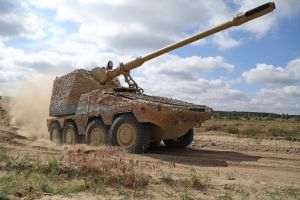Reporter: As a businessman, do you feel that the USL has taken steps to help the business sector, during its government term?
Sebastian Ghiţă: The macroeconomic stability was the first target that the government of Victor Ponta was require to reach. I think that this goal was reached since 2012, and this was visible in the international praises that Romania received from the most important publications, as well as in the evolution of the sovereign rating. 2013 has brought about government measures which will ensure serious economic growth.
The unlocking of the operational programs was a success. Romania has attracted from the EU European grants at an unexpectedly quick pace, which put us in the first position in terms of the increase of the rate of absorption of European grants in the EU. In 2013 we have reached an actual contracting level of 95% and a level of absorption of approximately 34%. This is what helps the business environment. Not the good intentions other governments have demonstrated so far.
Reporter: From your point of view, what were the main measures for aiding the business environment?
Sebastian Ghiţă: I talked about European grants, in general. POSDRU and POS CCE are aid programs which are addressed directly to companies, private or state-owned.
The development of the workforce in companies and supporting them with significant amounts of money to increase competitiveness for actions that can't be ignored by nobody. The lack of lending has been a huge problem for the business sector. Banks did not fulfill its position in the economy. Fear, that was the policy of the banks with foreign capital.
Eximbank and CEC, together with the NBR, with government support, have succeeded: the former, in developing the scheme for guarantee and aid through the state guarantees, and the Ponta government has raised the ceiling to 2 billion Euros.
The second important thing came from the forced reduction of the interest rates for loans denominated in lei. Today, all companies can take out loans in lei at a very low interest rate.
Also, the beginning of the de minimis scheme, through which every company that is ready will receive a grant of 100,000 Euros from the state, is another measure which will clearly benefit the business environment.
Reporter: Will it help the turnaround of the economy as well?
Sebastian Ghiţă: The greatest problems which our country's economy and the USL government come from the withdrawal of capital from banks, the drop in direct foreign investments, the drop in remittals of money by Romanians working abroad and the weak rate of absorption of the EU funds until 2012. Without equity, we can't hope for a turnaround of the economy. So, the fact that the Government has focused on increasing the rate of absorption was the best thing to do. The next target would have to restore people's confidence and stimulate consumption. Obviously, while increasing the efficiency of the latter.
The salaries in the public sector have been restored and the pensions have been indexed. The minimum wage has been raised. Then we have also succeeded in resuming discussions for major investments in the economy. Mining, energy, agriculture and privatizations will bring huge investments to Romania. It is the only way we can hope to turn the economy around. Still we shouldn't complain too much. In a Europe that is stagnating, Romania has grown 3% in 2013. We are heavily dependent on the economy of the EU.
Reporter: Do you think that the USL will keep its current form until the elections for the European parliament? What about until the presidential elections?
Sebastian Ghiţă: The USL is a project that has delivered government stability. We need to move to the political predictability stage to hope for economic growth and continuity. Money avoids political scandals. A high standard of living can not coexist with political turmoil. Only fools argue all the time. It is well known that "better" is the enemy of "good". Politicians must deliver stability. I think that the USL will endure. Otherwise, PSD must develop its social policies, and the PNL must propose a type of balance in the market. The solution must be a < win-win > one.
We can not ignore the social needs, but we need to keep pushing the pedal for the acceleration of reforms and privatization.
Reporter: Who do you think is the right man to get to the Cotroceni palace?
Sebastian Ghiţă: I've said it before. Whoever is the opposite of Băsescu! This is not a criticism aimed at him, but life isn't all about struggle. After the rain the sun must shine. Imposing some European standards in the judicial system was a good thing. Some abuse was done in the past in the name of the independence of the judicial system. That is done! That is in the past now! I think that the courts are now independent from the political and economic factors. The cases are no longer built and tried based on political pressure and bribes. The judicial system has become mature enough to defend itself, it no longer needs the "protection" of politicians.
No one will be able to suspect even Băsescu of something like that. Tiberiu Niţu, Laura Kovesi, Lidia Stanciu, the new teams do the Supreme Magistracy Council, Robert Cazanciuc, are people above any suspicion. That doesn't mean that they shouldn't watch over society.
Corruption destroys competitiveness.
Politics should not lead society on its own. The powers of the state should be in a state of balance, and Romania's president should be a mediator. The Constitutional Court is the referee.
Reporter: Last year was pretty tense for the USL, with shale gas and the mining projects of Roşia Montană and Certej causing the violent reaction of the civilian society. Do you think that these topics could affect the outcome of the elections?
Sebastian Ghiţă: No. People want jobs and a high standard of living. I think that these projects must begin with compliance with the highest environment standards. Certej already has all the permits. Shale gas is Romania's energy future.
Protests are good as long as they are peaceful and are not politically manipulated. The projects for Romania's development should not be politically manipulated. Not by Băsescu, not by Ponta, nor by agents of social influence. In a way, those were exercises of destabilization last year. A combination of < newmedia >, < oldmedia > and other types of organizations conducted a small exercise of destabilizing a government in Romania. Victor Ponta reacted intelligently and asked for people to be allowed to protest. Some would have wanted for violence to happen. Also, the head of the Romanian Intelligence Service (SRI) George Maior warned about that kind of aspects. Do you think that if the SRI turns its attention to something. that it does so needlessly?
Reporter: If the USL breaks, who could the PSD ally itself with to win the presidential elections?
Sebastian Ghiţă: An oak is not felled in one stroke! Let's not be too hasty to sing the requiem for the USL. Perhaps in the end, the PSD and the PNL will join into a third generation party. Some kind of New Labor. A progressive construction. Ponta could become a kind of Tony Blair of Eastern Europe.
Any party must join with the legitimate public interest, if it wants votes.
Reporter: How important is the role mass-media in politics, specifically in the winning of presidential elections?
Sebastian Ghiţă: I think that the role of mass-media in politics is being exaggerated. It's important, but it is not the most important. Today, Romania has a true media democracy. TV stations, newspapers, websites, radio stations, < new media tools >, which allow the expression of any kind of ideas, whether it be left-leaning, neo-liberal, conservative, blatantly populist, extremist, pro or anti European. Paradoxically, even the ones that pretend they are in favor of the freedom of expression and of the independence of the press would like to see a reduction of the number of media channels. I think that, Hotnews, ziare.com are doing a good thing when they criticize the Government or other institutions. I think that both Antena3 and Realitatea, or RomâniaTV, are doing the right thing. No one is the absolute ruler of the world, and the diversity of opinions and elegant criticism are important in society. I do not think however that those see themselves as the holders of absolute truth are doing the right thing. We all have to contribute ideas to society. People then come to the vote with their ideas. Let's stop thinking of them as stupid. The citizens have always made the right choice.
Reporter: There have been many voices that have said that this year the Romanian Intelligence Service will play a crucial role in the protection of the rule pf the law, amid the political struggles. How do you view this statement?
Sebastian Ghiţă: The SRI has played an important part in society and will continue to do so. That's why it was created. It is extremely well seen by the foreign partners. George Maior is a man of high value and can help a lot with his balance and calm. His education is superior to that of many leaders in Romania, and given his seven years in his current position he has massive experience.
I don't think that anybody is attacking the rule of the law today. There are some mistakes being made, but fundamentally, Romanian politicians, magistrates, businesspeople and even simple people accept and want the rule of the law.
The Romanian society has other antibodies as well to defend itself. The SRI is the first institution that got in touch with the Western values and reformed itself. I think that the average within the structures of the SRI is less than 35 years, and their organizational model is implemented by many other services in the world.
Reporter: How do you think Romania's economy will evolve this year? There are concerns from some analysts that the Executive will take some populist measures, given that 2014 is an electoral year.
Sebastian Ghiţă: We have treaties signed with the EU. Romania will develop within the framework agreed with our international partners. You're asking me too many questions about fear. Don't you want to talk about hope in Romania? People need to believe in good, not be afraid. That's how the economy develops.
Reporter: The topic of energy independence is frequently brought up by the political class in conjunction with the exploration of shale gas. Do you think that these explorations, and potentially exploitations, will ensure the energy independence of the Romanian state?
Sebastian Ghiţă: Totally! Hence some people's concern. I've seen studies in Europe which admit that Romania would become supercompetitive if it were to change its energy mix.
Reporter: At one time, you said that there could be foreign interests involved in preventing the exploration of shale gas from beginning. Do you think that the anti-Chevron protests and those to prevent the exploitation of Roşia Montană have been encouraged by foreign entities?
Sebastian Ghiţă: Yes. Some foreign interests were economic, and others were political. I told you that my sensation was that aside from the young people, the youngsters who protested in support of the environment, some destabilization exercises were conducted.
Reporter: Lately, an increasing number of voices have nominated George Maior as a potential candidate to the presidential elections. What is your opinion on such a scenario?
Sebastian Ghiţă: Many people and analysts consider George Maior as one of the most valuable and balanced leaders that Romania has. I think he could qualify for any position in Romania. Still, this game is not about individuals, but about teams. Who is president matters, but in a way it doesn't. What totally matters is the people the president surround themselves with. I am convinced that George Maior and other personalities like him will be part of the future team that will lead Romania. We need a new generation of smart, brave and responsible leaders.
Reporter: How would you comment on president Traian Băsescu frequent mentions of you?
Sebastian Ghiţă: Nobody is perfect. I make mistakes as well. I am careful and I try not to create problems for myself. If there are things I can fix, I do that. President Băsescu has lots of experience, and I really think that you can relate to him one way or the other, but you can't ignore him.
Reporter: Are you considering other acquisitions of media products?
Sebastian Ghiţă: There are some plans to acquire media products, but they currently only concern electronic publications and websites.
Reporter: Are you part of the "young wolves" in the Romanian politics and mass-media? How do you see their future?
Sebastian Ghiţă: Let's grow at the same time as the country! And if we get too big for our britches, let's measure our strengths with those of others in Europe and the world. Romania will need young wolves in Brussels and in other European capitals. If you stay within the borders of Romania, you are nothing but a European mosquito!
Reporter: As a businessman, and politician, respectively, as the EU has opted for a < bail-in > starting with January 2015, what do you favor, the < bail-in > (saving the failed banks by using any amounts of the depositors which exceed 100,000 Euros) or the < bail-out > (saving banks using the taxes collected from the population)?
Sebastian Ghiţă: I think that when the entire society makes a mistake and does not watch the banking system closely, it has to bear the costs along with it. Telling people that they are going to be left with only 100,000 Euros could cause entrepreneurs to become discouraged.
Reporter: Are you a stock market player? Are you interested in the financing through the Bucharest Stock Exchange?
Sebastian Ghiţă: I am not a player on the stock market, but I do feel that it is a mechanism that should be developed. It is hard for Romania to have a powerful expansion without a stock exchange. I also think that the "Bursa" newspaper has made a remarkable contribution to the development of the economy so far.
Reporter: Thank you!
< Shale gas represents our country's energy future >.
•
< We need to keep pushing the pedal for the acceleration of reforms and privatization >.
•
< Who is president matters, but in a way it doesn't >.
•
"I think that the courts are now independent from the political and economic factors".
•
"The projects for Romania's development should not be politically manipulated. Not by Băsescu, not by Ponta.".
•
< Ponta could become a kind of Tony Blair of Eastern Europe >.
•
< Romania will need young wolves in Brussels and in other European capitals. If you stay within the borders of Romania, you are nothing but a European mosquito! >



















































